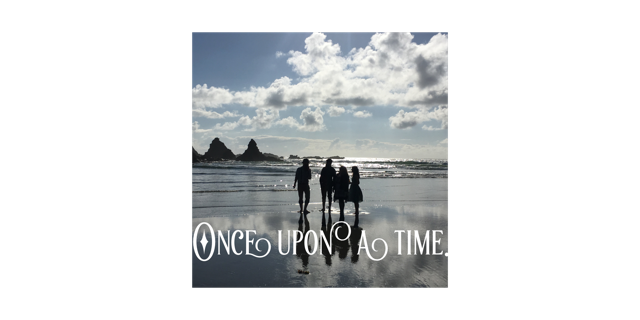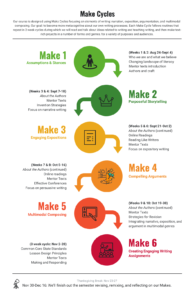
Make Cycle 2 & Golden Lines
Hello again everyone,
First of all, really beautiful work with the mentor texts. You did a fabulous job noticing the structures of these texts like the repetition of names, the use of features like italics or dialogue or lines breaks for impact. I also appreciate how many of you connected with the story of Maria and your own struggles with naming and pronunciations. We have such a responsibility as educators to do this most basic thing: know our students’ names. As so many of you pointed out: names are a huge part of our identity.
I added some of your insights below, which I will do often in updates. In the National Writing Project, we choose favorite passages or sentences from each other’s writing or our own writing, a practice we call “golden lines.” You can place Golden Lines from your students all over your classroom on bulletin boards or feature on a class website or ask students to highlight one sentence they are proud of to share at the end of each day. Everyone can read their Golden Line; it’s a great way to end a day…celebrating writing. Thank you everyone for such thoughtful ideas.
Golden Lines from the work with mentor texts:
Chapter 2 from My Name Is Maria Isabel really brought me back to my childhood and how much I relate to the story. My name Is Maria, which is a very common Hispanic name. Growing up, my family always called Marifer which is a combination of my first and middle name put together. When you say my name in Spanish I love the way it sounds. However, when I first started school when they would say my name in English it felt very weird and it was hard to get used to just as I imagine Maria Isabel felt. One thing I really like about this story is that it really connects to Maria Isabel’s identity and how she got her name. Once her name got changed in school, she felt misplaced. –Maria Ocampo
“I do not yet know who I’ll be, what I’ll say, how I’ll say it” is my favorite line in the story. This is an inspiring line and has such strong meaning to the story. The author gives me, the reader, hope that this little girl will grow up and have a strong voice. –Laurie Greco
To me, the subject of your name as a connection to family seems an important one for children in these stories. Maria Isabel is not happy with her teacher changing her name for the sake of making it easier for the class because she feels like it is robbing her of part of her identity, saying “We already have a Maria so we call you Mary,” is disrespectful and totally disregard what the name might mean to the family. –Catherine Schulze
I would borrow the element of using real world experiences into my writing to connect the real world to my own pieces of writing. A line I really enjoyed was when the writer stated “Deep in my heart, I do believe that we shall overcome someday” because I believe this quote from the song of the Freedom singers was the writer’s own mentor text. –Serena Loera
But the first that I noticed that stuck out to me was the use of descriptive words that she used. My thick curls, my pink blanket, and new toes really allowed me to get a crisper image at the scene. These things canreally help visualize a story or poem for the reader. And the other thing that I noticed was that the speaking words were in italics. That really helped me understand and figure out what was stationary and wat was vocal words. –Mike Akers
Make Cycle 2 is now on the site in the dropdown menu under Make Cycles for those of you who want to get started.
Enjoying our class so much already.
Kim
 You can find our current Make Cycles in the drop down menu and on the
You can find our current Make Cycles in the drop down menu and on the